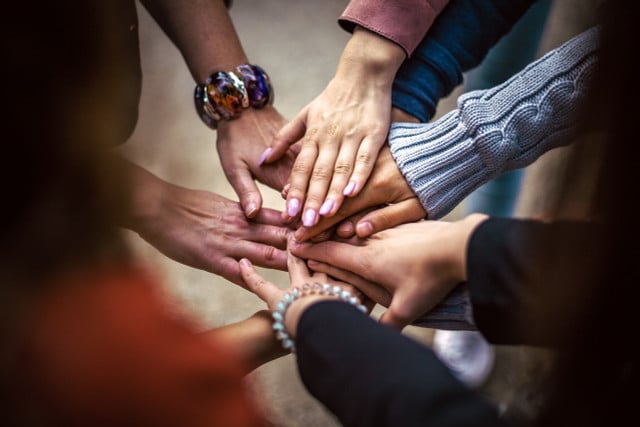
The term “social battery” is increasingly used to describe a person’s capacity for social contact. We explain in more detail what the concept is all about.
Even though we as humans don’t really have a battery or accumulator, we do have a limited amount of energy to do certain things. This also applies to social contacts. In this context, the term “social battery” has become established. Here you can find out what a “social battery” is, how and why it can become empty and how you can recharge your energy.
What is a social battery?
The term “social battery” is a metaphor used to describe how social contacts can drain a person’s energy. Because everyone has limited capacities to spend time with people and to act with them. When that battery dies, people can feel tired, drained, irritable, and unhappy. Then it can be an advantage to withdraw from social interactions and recharge the battery first.
How quickly your battery drains depends on a variety of things. For example, whether you are an introvert or an extrovert can have an impact on your social capacities. However, there are other factors that also play a role.
Social Battery: That’s why it’s getting empty

(Photo: CC0 / Pixabay / Bob_Dmyt)
The psychologist Dr. Meg Arroll tells UK magazine Stylist that it’s a mix of factors that determine how quickly our social battery drains. These factors include:
- our attachment style,
- our sense of stress,
- our own personality
- and the personality of our counterpart.
So it can be that some people rob you of a lot of energy. This phenomenon is particularly extreme in the case of so-called energy thieves. Other people, on the other hand, help you to recharge your energies. dr Arroll points out that it’s not just about whether you’re an introvert or an extrovert. Things like the size of a group, the length of social contact and your current mental situation can also affect your social capacities.
According to Arroll, the social battery also empties more quickly for some people because they are particularly sensitive to the moods of others. As a result, they generally find social interactions more strenuous. This is particularly pronounced in the case of high sensitivity. Others, on the other hand, constantly need new impressions and new social interactions in order to feel alive.
So how quickly our social battery empties or recharges can vary greatly from person to person. Arroll therefore recommends being careful with your own feelings and getting to know yourself well. Because that way, everyone can find out for themselves how best to recharge their own social batteries.
This is how you can recharge your social battery

(Photo: CC0 / Pixabay / silviarita)
Depending on your individual requirements, you need different things in order to have the capacity for social contacts again and to increase your well-being. The following aspects can be helpful:
-
Communication: Communicate your needs to friends, partners and colleagues. Don’t be afraid to say no or cancel appointments.
-
Time in Nature: Spend time in nature to reduce stress and become calmer and more relaxed.
-
Mindfulness: Mindfulness exercises, such as meditation, breathing and relaxation techniques, can also help you lower your stress levels and become more aware of your own needs.
-
Find alternatives: You actually have an appointment, but don’t feel like going to a crowded bar or restaurant? And you don’t want to be all alone today either? Instead of canceling, you may be able to offer a phone or video call as a substitute in some situations.
-
Less sensory overload: If everything gets too much for you again, try to minimize the stimuli around you. So it’s best to switch off your smartphone and put it far away, stay away from social media channels and consciously create time windows in which you can devote yourself to self-care.
-
Protect your energy: Some people in your life keep robbing you of a lot of energy without giving you anything in return? It can then make sense to talk to these people about it or, if necessary, to break off contact altogether.
Once you’ve figured out the best way to recharge your Social Battery, try to incorporate these methods into your life on a regular basis. However, in order for those around you to better understand your actions or refusals, it is important that you communicate your situation clearly to them.
On the other hand, it is just as important that your fellow human beings can also tell you their needs. If a friend cancels your appointment because she no longer has any social skills, you shouldn’t blame her. Of course you can be disappointed. And if there are several rejections, it is also worth addressing your disappointment. However, be careful to react in the way you would wish to react the other way around.
Read more on Techzle.com:
- In our society, is it better to be an extrovert?
- High sensitivity: How to recognize and deal with it
- Personality Types: These are the 3 most popular approaches